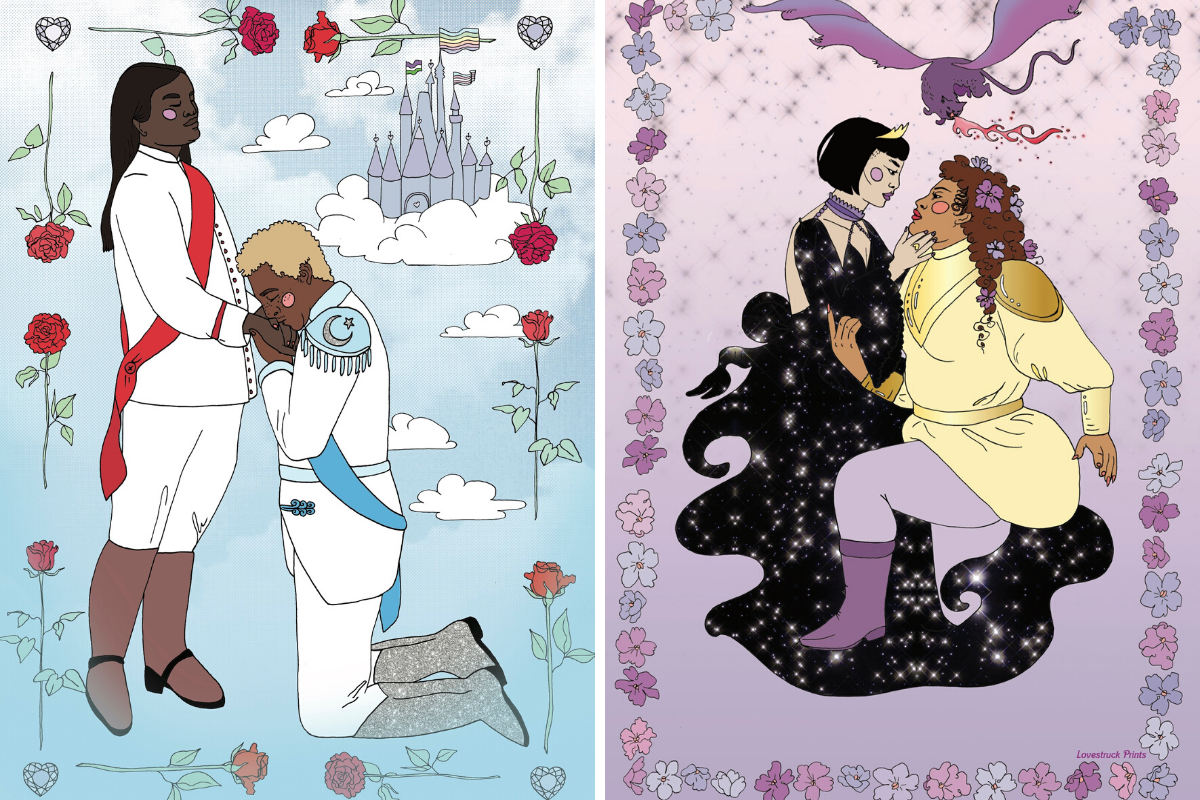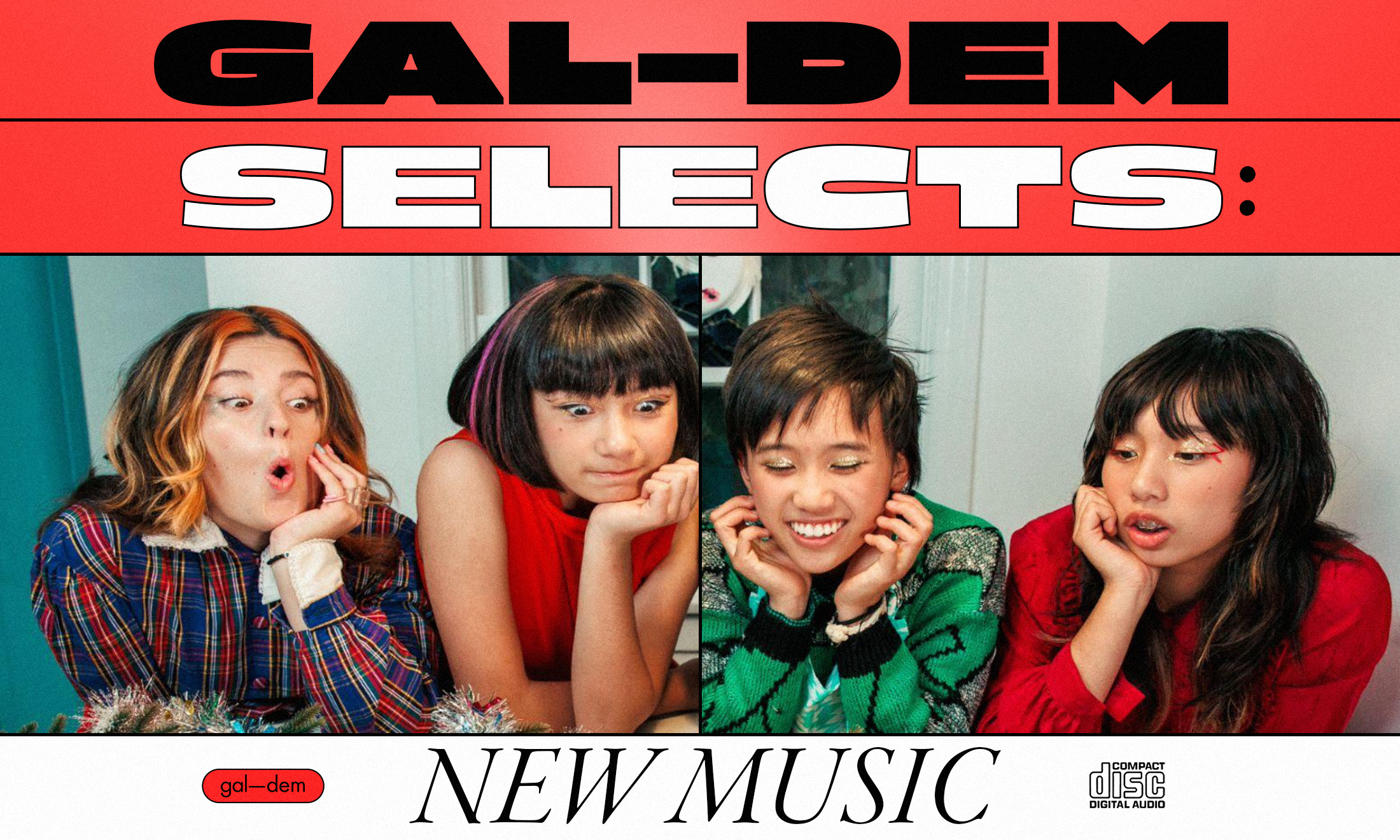
“Queermas” is a hybrid creation. It’s a word seemingly contradictory in its etymology, for “queer” and “Christmas” have arguably never really aligned. Difficult familial relationships, rejection and estrangements are a reality for some of those in the queer community, meaning a traditional Christmas spent with family is off the table. And so Queermas is something that has evolved over time, as our community has found creative ways to survive. It isn’t just a more queer version of Christmas. For many of us, Queermas is a necessity. Queermas’ across the globe, from the UK to Kenya, are a rebellion from all the silence and taboo of the families we’re born into, and instead allows us all to share a space with our chosen families, the people we can talk to about the issues that affect us the most, and who can understand us unconditionally.
This Christmas, Queermas events aimed at people of colour (PoC) in the UK have gained visibility. At ICONIQ, a new safe space organisation for queer youth, we made the decision to host our own Queermas event on the 21 December back in Summer. We are all young queer PoC with faith, who know deep in our bones what it means to be isolated by our communities and families. But thankfully, we aren’t alone. From Tanya Compas’Queer Black Christmas and Aisha Mirza’s Misery: The (Christmas) Office Party to Li Benedetti’s Trans Winter Wonderland, in 2019 the community has come together both publicly and privately to celebrate and support.
It is almost impossible to find anything that really interrogates where the term “Queermas” came from. There’s some digital evidence that it sprang up in the early 2000s, but it is really only in the last couple of years that the concept truly hit popular culture. The extent of this acceleration, and also its connection to internet culture, could lead some to think that Queermas is yet another victim of rainbow capitalism. However, we think the reality is much more complex than can be explored in relation to our own navigations towards hosting our own Queermas.
“Many of our young queer siblings are either pressured into returning to biological and discriminatory families or constantly reminded of their own isolation”
When we first started working together as a group, we wanted to change so much about the world that we didn’t even know where to start. But it gradually became clear to us that we all needed the same thing: space where we would celebrate, include and accept each other, rather than waiting for the validation of the people who marginalised us. It clicked that our work would be most necessary during the holiday season, a time when many of our young queer siblings are either pressured into returning to biological and discriminatory families or who are constantly reminded of their own isolation during a time of enforced joy.
Beyond our own lived experiences and complex relationships with Christmas time, there are statistics that prove that an event like Queermas is more than just wanted, it is necessary. LGBTQI+ young people are four times more likely to self-harm than our non-queer peers, almost one-third of gay and bi and one-fourth of trans, people of faith aren’t out to anyone in their community, and 51% of queer PoC report discrimination from the wider LGBT+ community. And yet, for us, the statistics didn’t fully speak to the harm we experience. They did not truly engage with our lived experience as PoC with faith. And consequently, they did not capture how the world as it is has fractured our marginalised communities, pitting our religious and cultural identities against our sexual and gender identities.
What exactly Queermas is and why it matters are questions we as a group are piecing together in the aftermath of our first event, on Saturday 21 December. However, as we understand it, Queermas is a reclamation of all the spaces we’ve been exiled from; our churches, our synagogues, our mosques, our homes, and our communities. Queermas is open to people of all faiths, and it parodies the dominant and hegemonic Christian doctrine that has been imposed on many cultures and communities of colour through colonialism and white imperialism. Queermas, therefore, isn’t only a struggle for queer liberation, it is also intimately tied to the space that exists between race, gender, sexuality and faith.
In the spirit of embodying these subversive values, we sought to build community with other young queer people of colour (QTPOC) across London. We desperately wanted other QTPOC young people with or without faith to walk into our event and see a space filled with black queer activists and religious leaders who were ready and willing to talk to them. With posters and artwork of queer icons from across history – the people who walked before them. Filled with friends that they hadn’t met yet. Filled with family they didn’t even know they had. A home away from home. The home they had always wanted. A space where they could begin to organise.
“Queermas is a reclamation of all the spaces we’ve been exiled from; our churches, our synagogues, our mosques, our homes, and our communities”
We decorated our space with basically everything queer you could possibly imagine – gold tassels, queer art projections, bean bags and soft furnishings galore. We made sure there was a designated self-care space. Once our guests had arrived we started our day with some shared food: jerk chicken, lentils and black bean wraps. We had an incredible session on sex, pleasure and sexual health for queer young people, which provided a space to self-reflect on our different experiences of faith, love and shame. We put on a facilitated panel discussion on faith and queerness, where amazing religious leaders, including people from Inclusive Mosque Initiative and House of Rainbow, spoke. There was a two-course family sit-down meal of aubergine curry, dhal, miso mushrooms and rice followed by brownies.
At the end of the evening, we stood up and did a call to action. A call to all our attendees to join us in our fight for spaces for people like us. We knew before we hosted the event that the words of our communities are powerful, but we had no idea how powerful. For us organisers, it was one of the best days of our lives, and so many of those who attended told us they no longer felt invisible. They felt seen. They felt loved. We finished our event by dancing to arguably the greatest new hit, Nicole Tv’s ‘Move Like A Snake’.
And so while Christmas does end, Queermas does not end on 27 December. In fact, for us and for the other queers out there who organised their own Queermas’, it is only just the beginning.
You can follow ICONIQ’s work on @iconiq_advocacy (Twitter and Instagram).









